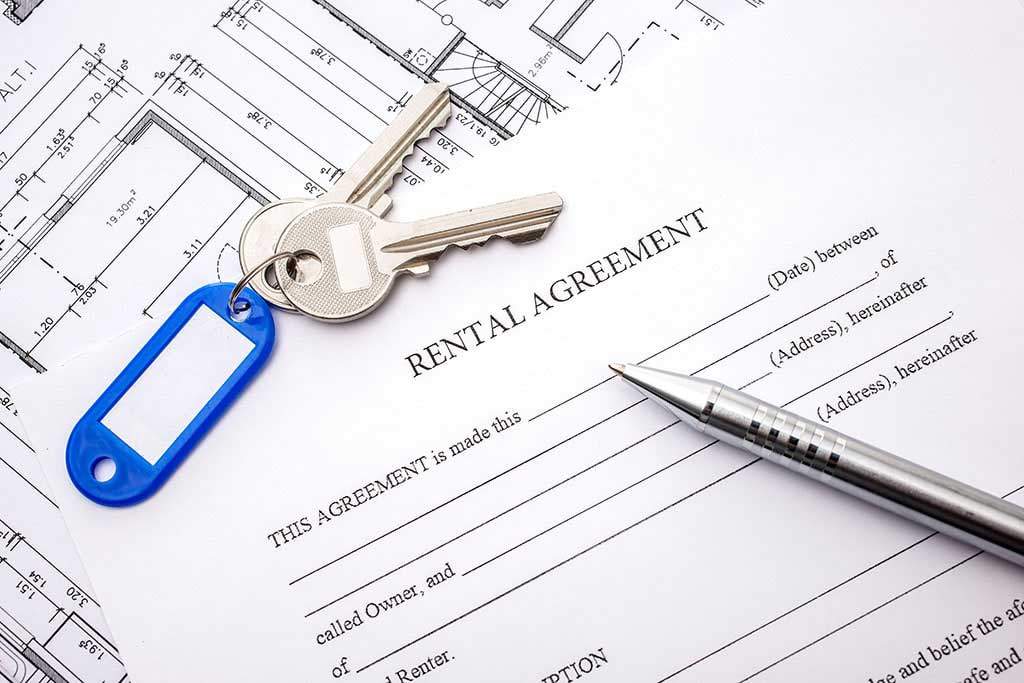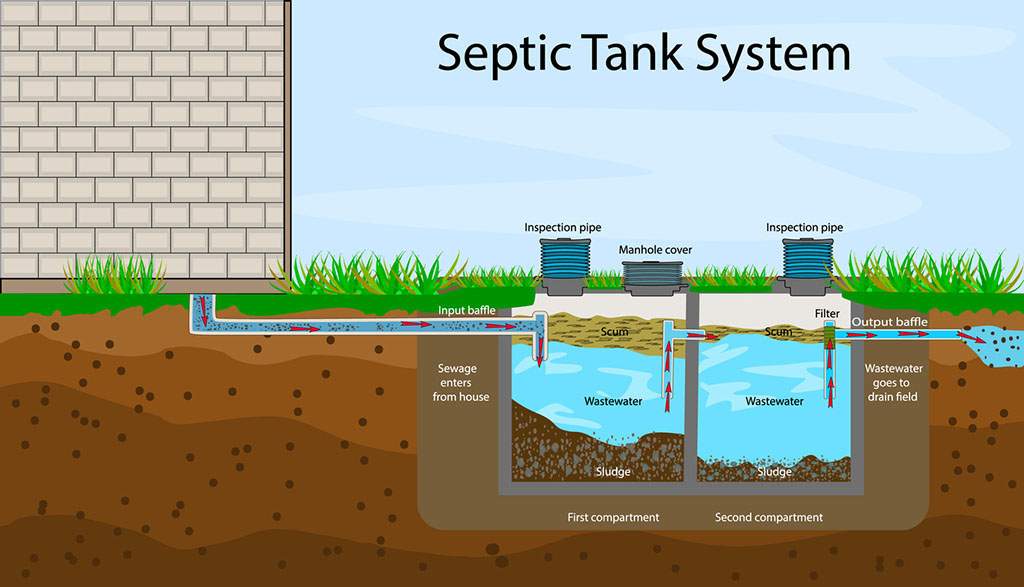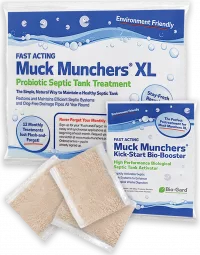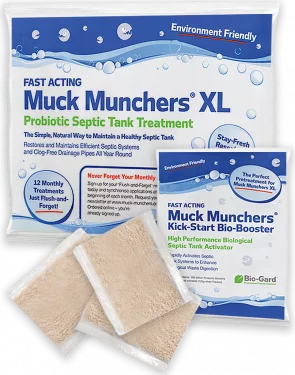Septic Tank Rules For Tenants
When we decide to rent a property, there’s a list of questions that we automatically know to ask including, requesting an idea of how much the utility bills are per month to the cost of council tax, energy efficiency ratings and deposits. However, if you’re looking to rent a property with a septic tank do you know the septic tank rules for tenants?
Although these questions are undeniably important when renting a property, when it comes to renting a property with a septic tank it’s important to know the septic tank rules for tenants, what to ask and what to expect in terms of your responsibilities.
No one really wants to think about the disposal of wastewater and in particular your sewage. For most of us, it’s an automatic assumption that the property we rent is connected to the main sewage system. However, if you are looking to rent a property which is in a rural location there’s a high chance that the property, be that a house or flat is not connected to the mains sewage system.
While most homes in the UK are connected to a mains drainage network, there are around 5% of properties that are not and instead their wastewater is managed by septic tank systems.

Should You Worry About Renting a House with a Septic Tank?
We don’t believe so. Septic tanks are very reliable and when well-maintained you won’t know the difference to being connected to a mains sewage system or a good off mains draining system. In fact, one of the benefits is that you will not be paying sewage charges on you water bills, which can cut them by as much as 50%.
That said, they can be expensive should they go wrong and as a tenant there are a few septic tank rules to familiarise yourself with, along with five key questions we recommend that you ask prior to committing to your lease, in order to protect yourself from potential problems that may have built up from previous tenants – you don’t want to be accused when something goes wrong if you have only just moved in!
5 Septic Tank Questions to Find Out Before Signing Your Tenancy Agreement
- Who is Responsible for Septic Tank Maintenance?
- When Was the Septic Tank Last Pumped Out?
- In the Event of Serious Drainage Issues Who is Responsible?
- Who is Responsible for Booking and Paying for Septic Tank Inspections?
- Is the tank used by the Property Only – or is it Shared with Others?
At the bottom of this guide we briefly explain why you should ask these questions in addition to providing you with some additional information on:
- What is a Septic Tank?
- How Does A Septic Tank Work?
- Tips to Maintaining A Healthy Septic Tank.
1. Who is Responsible for Septic Tank Maintenance?
Depending on the landlord, certain precautions may have been taken into account and added into the agreement with either the letting agent, landlord or a maintenance company. But if not, you will need to ascertain where your responsibilities lie with regard to maintenance of the septic tank system.
It is not unusual for the tenant (you) to be responsible for the upkeep of the tank. That is, you will be responsible for ensuring you maintain the septic system and pay for pump-outs. This is, generally speaking, perfectly normal. However, should you want to be sure that you are not inheriting any issues from the previous tenant(s), then a good rule of thumb is to ask:
2. When Was the Last Septic Tank Pump-Out?
It would be wise to ask the letting agent or landlord when the last septic tank pump-out was, as this will help you gauge if this is going to be a task that is required any time soon. You will also want to ascertain who is responsible for paying for the pump-outs.
Septic tanks generally need to be pumped out every year. That can extend from 3 to 5 years, depending again on the size of the septic tank, the amount of people using it and whether you are using a biological septic tank treatment to enhance the rate of waste digestion.
Having the septic tank pumped is a process which can aid to maintain a functional, healthy septic tank and soakaway.
3. In the Event of Serious Drainage Issues Who is Responsible?
In most cases, in the event of serious drainage issues to do with the septic tank, it is the owner of the property who is responsible for any repairs that will ensue.
However, should the problem have occurred due to the tenant, then the landlord may insist that the tenant pay for the repairs.
Damage can occur to septic tanks if they are misused. Over time a build-up of undigested waste can eventually cause a big problem to any septic system.
Also, do note that it’s not just what you put down your drains that can cause significant issues. Age, poor maintenance and management, including wear and tear to baffles in the septic tank, damage from tree roots, and excessive use, or more than what the installed soakaway is able to deal with can all cause septic systems to fail. Although the damage may not appear immediately, over time and if not caught early enough, costs to put things right can be significant. This is why we recommend you find out when the septic tank was last inspected, and if not for several years, requesting that the septic tank is inspected and pumped-out, before you sign any tenancy agreement.
Having the septic tank inspected beforehand will help both you and your landlord be certain as to who is responsible for any eventual damage caused to the septic tank.
4. Who is Responsible for Booking and Paying for Septic Tank Inspections and Pump-Outs?
The person responsible for booking and paying for septic tank inspections really depends on the tenancy agreement you sign. If there is an explicit paragraph about the septic tank stating that you, the tenant, are responsible for the septic tank, then it is up to you to make sure that the septic tank is kept up to UK standards and is functioning properly.
However, should there be no reference to this in the tenancy agreement, then it will be the responsibility of the landlord to check the system, book and pay for septic tank inspections and pump-outs. There is no specific regulation as to how frequently a septic tank should be inspected, however, it is highly recommended that they are inspected at least every three years.
5. Is the Tank Used by Your Property Only or is it Shared with Others?
If you are renting a property with a shared septic tank each resident may be responsible for the shared septic system. However, as a tenant you will want to check your tenancy agreement to ascertain if any responsibility lies with you (the tenant), the landlord or if there is a maintenance company contracted to maintain the shared system.
Now, you may be thinking that this all sounds too complicated and that you have no idea how to take care of a septic tank! Well, you can rest assured knowing that there really is no need to worry. In order to maintain a fully functional septic tank, the main thing is simply to treat it with respect. Just like any tool or piece of equipment, the tank has its job to perform; should you overload it or try to make it do something that it simply isn’t up for, you will add unnecessary strain to your septic system.
Next, we briefly cover the core information you need. We have included lots of links to our website that is packed with useful products and helpful information, plus websites that also offer great information to help give you peace of mind.

What is a Septic Tank?
Of course, if you are moving into a property that has a septic tank, it is important for you to know exactly what a septic tank is and how it works.
As discussed, septic tanks are more commonly found in rural areas, as all or most households in the towns and cities are connected to main sewage systems.
However, 5% of the UK population live perfectly well with a septic tank, have few issues if any (when they maintain them correctly) and enjoy the added benefit of not paying taxes on their wastewater.
How Does A Septic Tank Work?
A septic tank is a structure that is placed underground, made usually of concrete, fibreglass or plastic. It treats all of the water that is drained from your kitchen, washing machine, bath, shower and toilets.
The purpose of a septic system is to break down organic waste in your wastewater. In simple terms, it separates the solid matter from the liquid matter. Solids sink to the bottom (sludge), the middle section is the liquid and the top layer is the scum. The clearer, cleaner wastewater that is contained in the middle is discharged into a soakaway.
Tips for Maintaining a Healthy Septic Tank
The first, simple and efficient way of avoiding any septic tank issues is by not flushing any items down the toilet which could damage it. The golden rule is to stick to the 3 P’s (Pee, Paper and Poo) and to familiarise yourself with how to maintain a septic tank.
It’s important to understand the damage that may be caused by flushing and draining certain pieces of waste (such as food, hair, nappies, sanitary towels and tampons, cigarette buts, cotton buds, baby wipes, etc) which can and will over time block your septic system, causing problems with drainage, foul odours and the potential to cause expensive issues with your soakaway. Being mindful and respectful of the drainage system is essential for a healthy septic system.










